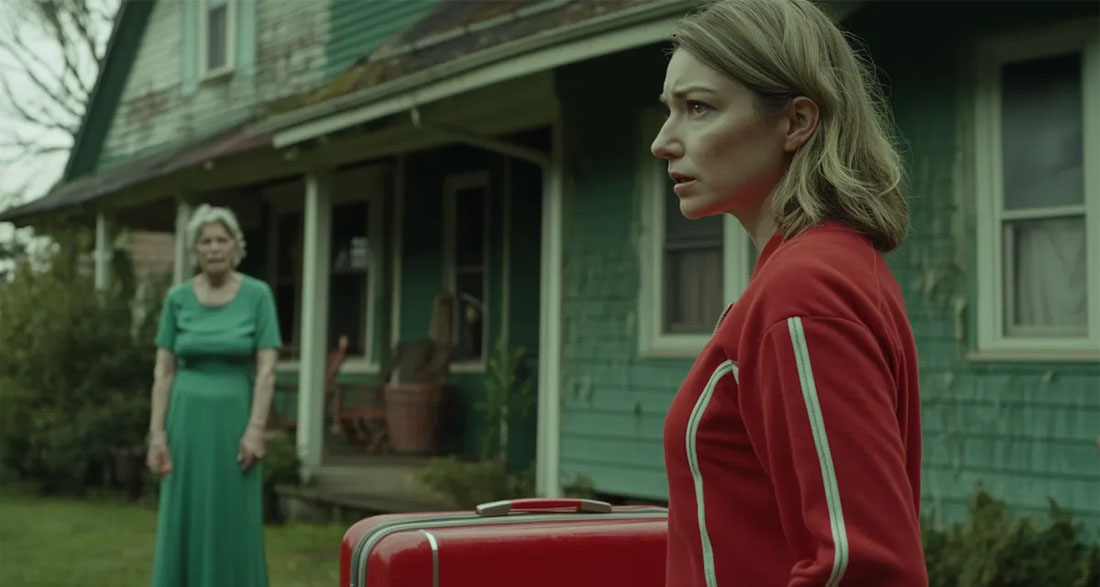The rain drummed against the rooftops as I pulled my coat tighter around me and hurried toward the notary’s office. The chill in the air did nothing to numb the ache in my chest.
My father was gone. The man who had raised me, my only family, was no longer here. And now, I was left to deal with the mess he had left behind. The house we had lived in together was about to be repossessed, and I had nothing left to fight with. No money, no resources—just a heart heavy with grief and a mind drowning in unanswered questions.
As I stepped into the dimly lit hallway of the office, the scent of old paper and dust filled my nostrils. I was ushered into a small room where an older man, the notary, sat behind a desk stacked with documents. He adjusted his glasses and gestured for me to sit.
“Let’s get started,” he said, flipping through the pages of my father’s will.
I barely listened as he droned on about debts, assets—things that no longer mattered. My mind wandered to my father’s voice, his laughter, the bedtime stories he used to tell me as a child. I thought I had known everything about him.
Then, the notary said something that jolted me back to the present.
“A house.”
I blinked. “I’m sorry… what?”
“A house,” he repeated, sliding a document across the desk. “Your father owned another property. And it’s been left to you.”
I stared at the paper in disbelief.
“A house? That’s impossible. He never mentioned it.”
The notary merely shrugged. “It’s all here in legal documentation. The house exists, and it belongs to you now.”
My hands trembled as I picked up the document. The address was unfamiliar, yet something about it sent a shiver down my spine. Why had my father never told me about this? What secrets had he kept?
There was only one way to find out.
The next day, I took a day off work and made the trip to the address listed on the document. The road was winding, flanked by towering trees dressed in golden autumn leaves. It should have been beautiful, yet a strange unease settled in my chest the closer I got.
When I arrived, I stopped in my tracks.
The house was old but well-maintained. Large windows caught the afternoon light, a porch freshly painted in contrast to the moss-covered roof. It looked like something from an old storybook, yet it felt… wrong.
I hesitated at the front door, gripping the key the notary had given me. Sliding it into the lock, I turned it.
It didn’t fit.
Frowning, I tried again. The lock had been changed.
Before I could process what that meant, the door suddenly flew open.
“Can I help you?” a sharp voice demanded.
I stumbled back, my heart leaping into my throat. A woman, likely in her sixties, stood in the doorway. Her sharp features were set in a glare, but her tired eyes held a defiant spark.
“I—uh—this is my house,” I stammered, holding up the key. “It was left to me by my father.”
Her lips pressed into a thin line. “Your house?” She let out a dry laugh. “I’ve been living here for twenty years. I’ve paid the bills, repaired the leaks, fixed the roof. This is my home. And I’m not leaving.”
I tightened my grip on the key. “I don’t know who you are, but I have legal documents. This house belongs to me.”
Her expression didn’t change. “Paperwork doesn’t mean a thing to me. I’ve put my blood, sweat, and tears into this place. You think I’m just going to walk away?”
I squared my shoulders. “And you think I’ll let you steal what’s rightfully mine?”
For a moment, we stood in tense silence, staring each other down like two opposing forces in a battle neither wanted to lose.
Finally, she exhaled sharply. “Fine. Stay here if you want. But don’t expect a warm welcome.”
She stepped aside, allowing me entry. The moment I walked in, the weight of the past seemed to settle on my shoulders. The air smelled of wood polish and time. The furniture was worn but well-kept. It wasn’t just a house—it was a home.
A home that had belonged to this woman.
A home that was supposed to be mine.
Living with Deborah—because that was her name—was like living in enemy territory. She banged around in the kitchen at odd hours, misplaced my belongings, and conveniently shut off the water whenever I was in the middle of a shower.
But there was something else beneath her hostility. A loneliness that I recognized all too well.
Then, one morning, I found my clothes—a dress I had carefully ironed for an important meeting—thrown in a heap of mud outside. My patience snapped.
I stormed into the kitchen, slamming the dress onto the table. “What is wrong with you?!”
Deborah barely glanced at me as she sipped her tea. “Something wrong?”
“You threw my clothes in the mud!” I nearly shouted. “I’ve done nothing to you, and you treat me like a criminal! Why?”
For the first time, her mask cracked. She set her teacup down, her hands shaking slightly. “Because you don’t belong here,” she whispered. “This house… it was never meant to be yours.”
A cold chill ran down my spine. “What do you mean?”
Her lips trembled. Then she pulled something from her pocket—a small silver bracelet. She held it out to me, her fingers hesitant.
“Look at this.”
I took it, and my breath caught. My name and birthdate were engraved on the delicate surface. I knew this bracelet. I had worn it as a child.
Tears welled in her eyes. “He told you I was dead, didn’t he?”
I felt like the ground had been pulled from beneath me. “What?”
“He took you,” she said, her voice cracking. “When I left, he took you and never looked back. I was your mother. I am your mother.”
The world spun. I stumbled back, gripping the bracelet like a lifeline.
Everything I knew about my father, my past—
It had all been a lie.
The following weeks were filled with quiet conversations, painful truths, and cautious attempts to mend the past. Deborah and I were no longer enemies but two broken souls trying to find common ground.
On the day of the court ruling, I already knew what the verdict would be. Deborah had lived there for decades, cared for the house, made it her home. The law sided with her.
And surprisingly, I didn’t mind.
As I packed my suitcase, preparing to leave, she hesitated in the doorway.
“I don’t want you to go,” she admitted softly. “I’ve spent years resenting the past. I don’t want to lose you again.”
Her words hit me harder than I expected. I stared at her, then, without thinking, stepped forward and hugged her.
She stiffened—then, slowly, her arms wrapped around me.
“I don’t want to lose you either… Mom.”
And just like that, the house that had once been a battleground became the place where we rebuilt what had been lost.
A home, not of bricks and wood, but of forgiveness and love.














